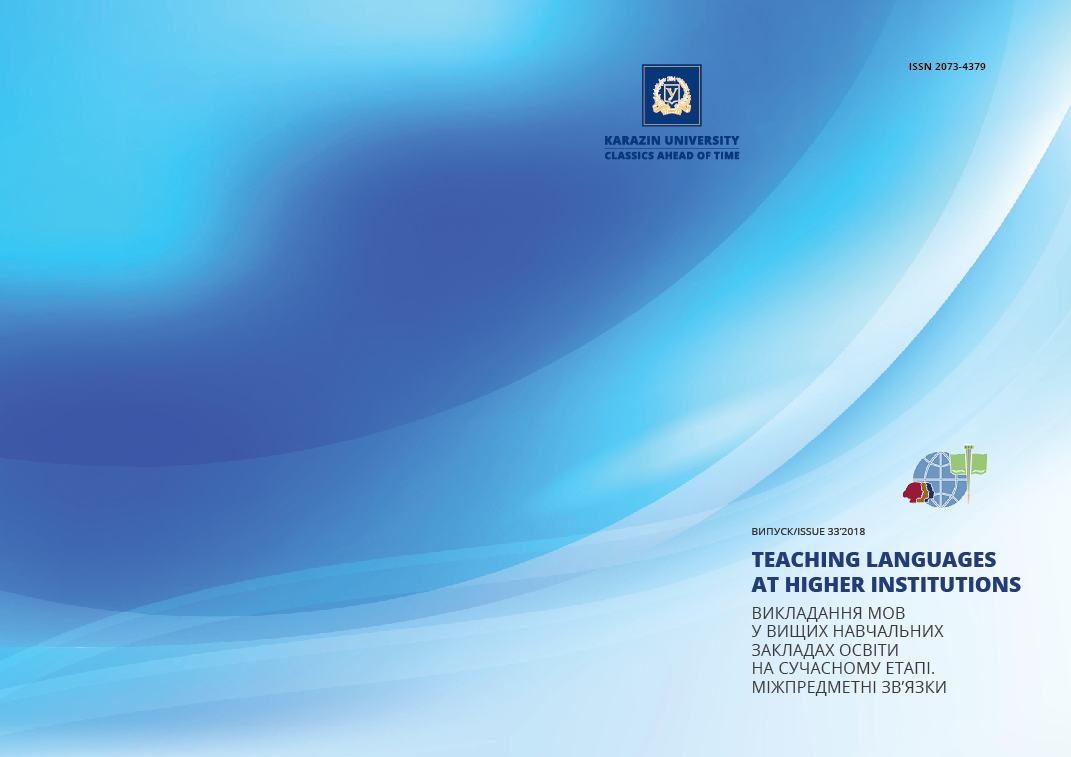Analytical forms and constructions as difficulties in mastering the grammar of a foreign language
Abstract
The article is devoted to analytical forms and constructions of the Russian language. The relevance of the work, which is explained by the strengthening of analytical trends in modern Russian, is substantiated. Analytical forms and constructions are defined as grammatical difficulties in language learning by foreign students. The main manifestations of analyticism in the grammatical system of the modern Russian language are analyzed. The main difficulties of assimilation of analytical forms and structures are revealed. The optimal approach to overcome such difficulties is proposed. The main means to overcome the difficulties associated with the assimilation of analytical forms and structures of the language, as well as the means for forming grammatical skills are: preliminary listening to the material, imitating in speech, the uniformity of phrases and the regularity of their repetition, action by analogy, “relative” error-free actions, various methods automation and speech performance. The introduction of a new grammatical phenomenon is based on a communicative approach to language learning. At the stage of presentation of analytical forms and constructions, attention should be paid to the formulation of rules-instructions and rules-generalizations, which must be built in accordance with the following requirements: functional orientation, adequacy, scientific, generalization, accessibility, and guidance. Taking into account the peculiarities of the Russian language grammar structure, the existence of analytical forms and constructions, difficulties in their study as well, it is expedient to introduce a presentation of new grammar constructions using additional tables and systematizing the material periodically.
We are convinced that in educational materials for foreign students, each language fact must receive a detailed methodological description in different plans: from the point of view of its place in the system of language phenomena, functioning in speech, use in receptive and productive speech actions, “servicing” communicative tasks, conditionality non-linguistic factors, correlation with the facts and the system of the native language for the student.
Downloads
References
Knyazev, Y.P. (2014). Vozdeystvie referentsii k buduschemu na protivopostavlenie vidov v russkom yazyike [Impact of reference to the future on the opposition of species in the Russian language]. Acta Linguistica Petropolitana. Trudyi Instituta lingvisticheskih issledovaniy RAN, X (2): Russkiy yazyik: grammatika konstruktsiy i leksiko-semanticheskie podhody [Proceedings of the Institute of Linguistic Studies of the Russian Academy of Sciences, X (2): Russian language: construction grammar and lexical-semantic approaches]. SPb.: Nauka, pp. 43–70. [in Russian].
Melnikov, G.P. (2003). Sistemnaya tipologiya yazyikov: Printsipyi. Metodyi. Modeli [System typology of languages: Principles. Methods. Models]. M.: Nauka [in Russian].
Nikitevich, A.V. (2004). Russkiy glagol v sostave nominativnyih ryadov [Russian verb in the nominative series]. Grodno: GrSU [in Russian].
Tipologiya morfosintaksicheskih parametrov [Typology of morphosyntactic parameters]. Materialyi mezhdunarodnoy konferentsii “Tipologiya morfosintaksicheskih parametrov 2015” [Materials of the international conference “Typology of morphosyntactic parameters 2015”]. (2015). Vol. 2. Moscow: Moscow State Pedagogical University [in Russian].
Valgina, N.S. (2001). Aktivnyie protsessyi v sovremennom russkom yazyike [Active processes in modern Russian]. M.: Logos URL: http://www.hi-edu.ru/e-books/xbook050/01/about.htm [Accessed 17 Sep. 2018] [in Russian].
Vinogradov, V.V. (1947). Russkiy yazyik. Grammaticheskoe uchenie o slove [Russian language. Grammatical doctrine of the word]. M., L.: Uchpedgiz [in Russian].
Zelenkov, A.I. (Ed.) (2007). Filosofiya i metodologiya nauki [Philosophy and methodology of science]. Minsk: АСАР [in Russian].

